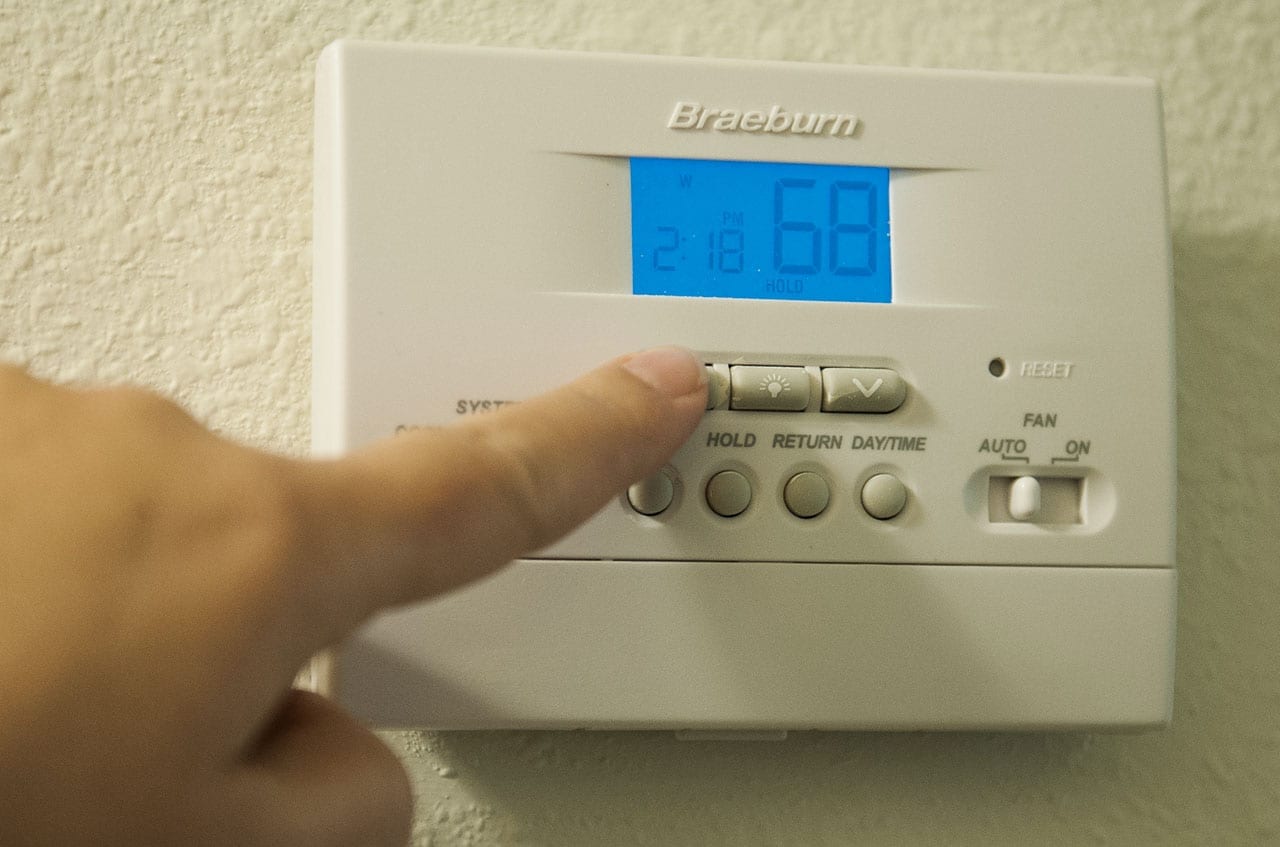
As the seasons change, it’s important to ensure that your thermostat is working properly and adapting to the weather. Did you know that you can save hundreds of dollars annually by choosing the right thermostat and programming it properly? For such little work, you’re saving quite a bit of money. Along with saving money, you’ll decrease your energy consumption, which is beneficial for our planet.
Programmable thermostats automatically warm or cool the house to the proper comfort level, depending upon whether you’re home or at work and awake or asleep. For most people, this means using less heating or cooling when you’re asleep or out of the house than you would if you were awake or at home.
Programming your thermostat means that your device will be designed around your schedule, house size, and personal preferences. This can help you get the most out of your thermostat, providing many benefits for you and your family. Take the time to find the right unit and reach out to a professional technician who can make the best recommendation for you.
4 Thermostat Programming Options to Consider
There are four major types of programmable thermostats. Some are tailored for specific heating or cooling systems, while others offer features like Wi-Fi connectivity for remote control. Understanding these differences can help you choose the right programmable thermostat for your home comfort.
1. 1-Week Programming
Programmable thermostats come in various styles, each designed to suit different needs and preferences. One common type features a consistent program for each day of the week, simplifying the programming process. While it’s the easiest to set up, this model may provide less automatic energy savings as it doesn’t adapt to varying schedules on different days.
Nevertheless, like all programmable thermostats, you retain the flexibility to override the programmed settings at any time, allowing you to manually adjust the temperature to match your immediate comfort requirements. If you’re unsure how to program a digital thermostat, reach out to a professional.
2. 5-2 Programming
This style of programmable thermostat operates on a dual-program system, accommodating both the typical five-day workweek and the two-day weekend. If your schedule follows the conventional workweek and your weekend activities on Saturday and Sunday mirror each other, this thermostat is an ideal fit.
With separate settings for weekdays and weekends, it provides flexibility to optimize your home’s climate control based on your routine, ensuring comfort and energy efficiency.
3. 5-1-1 Programming
Tailored for a typical work week, this type of thermostat offers one program for the five weekdays. Additionally, it recognizes the unique scheduling needs of the weekend, featuring separate programs for Saturday and Sunday.
This flexibility allows users to efficiently manage and customize temperature settings based on their daily routines, optimizing both comfort and energy efficiency in their homes.
4. 7-Day Programming
This type of programming allows you to set a different temperature pattern for every day of the week. For many families who have different schedules every day, this type of thermostat offers the most convenience and energy savings, although it does require a little more time to program.
With all of these options, it’s beneficial to speak to a specialist who knows how to install a programmable thermostat to your specifications.
Thermostat Tips to Save Money
Each of the four types of programmable thermostats offers at least four set times during the day: wake time, sleep time, leave time, and return time.
If you follow these tips to drive energy savings, you can save an average of 15 percent off your yearly costs:
- Begin reducing cooling or heating 20 to 30 minutes before leaving for the day.
- Raise the cooling or heating for 20 to 30 minutes before returning home.
- During winter, decrease heating by seven to eight degrees when you’re asleep or away.
- In summer, raise the temperature by two to three degrees when you’re away to reduce air conditioning usage.
As a general rule of thumb, to maximize efficiency, you can turn your furnace temperature down or your air conditioner up one degree for every hour you are asleep or away, with the minimum being two hours or degrees and the maximum being eight hours or degrees. Less than two hours and it won’t save energy, and more than eight and you will waste efficiency when the system has to work too hard to get back to a comfortable temperature.
Our team at Home Comfort Experts knows how to program a thermostat for homeowners in Northern Indiana and Southwest Michigan. If you’re looking for advice on the right unit for your home, contact us today to speak with one of our knowledgeable technicians.



